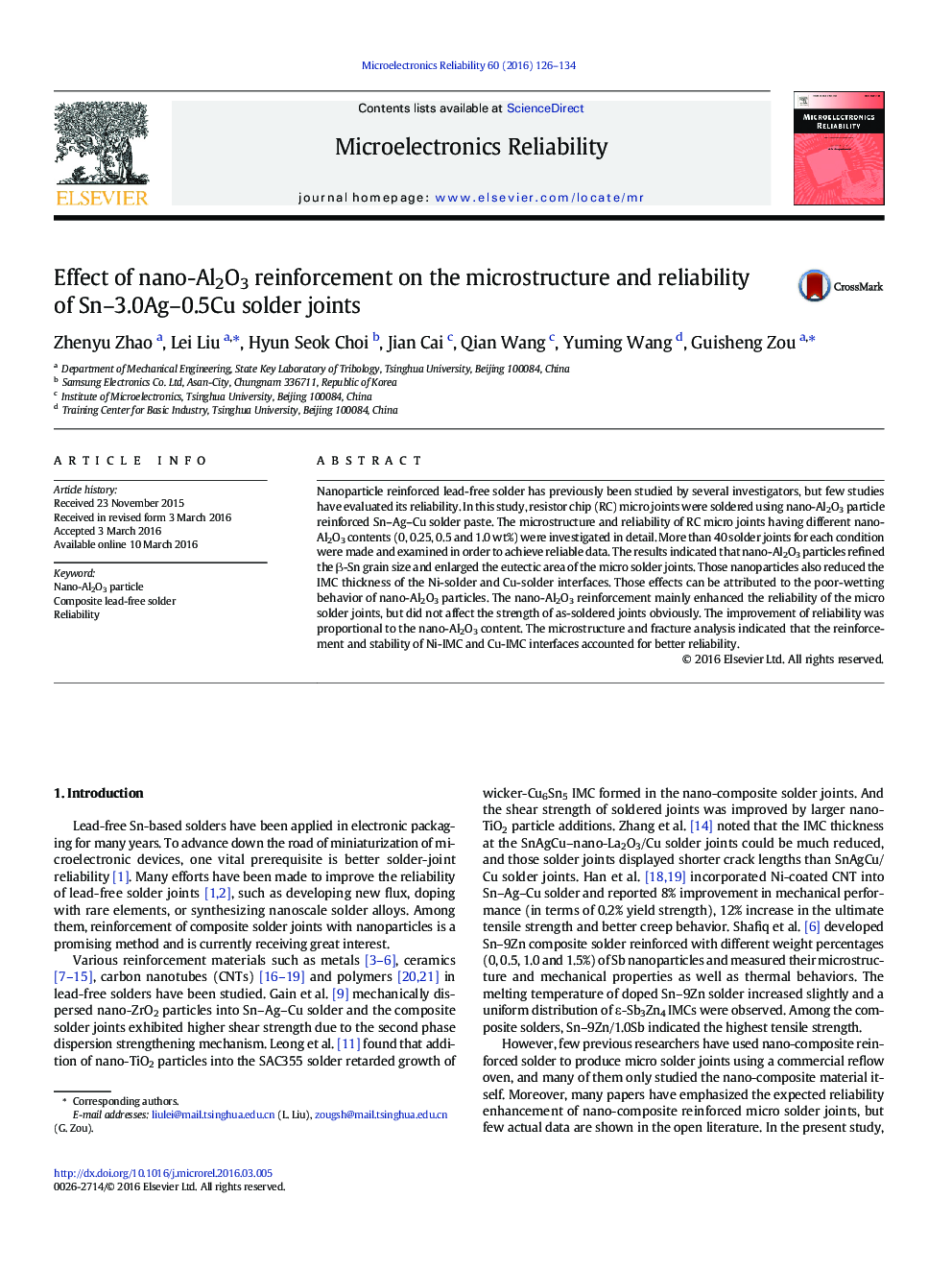| کد مقاله | کد نشریه | سال انتشار | مقاله انگلیسی | نسخه تمام متن |
|---|---|---|---|---|
| 546712 | 1450540 | 2016 | 9 صفحه PDF | دانلود رایگان |

• Resistor chip was used to evaluate solder performance in micro solder joints.
• Nano-Al2O3 improved the reliability of SAC305 solder.
• Both solder metal and IMC grains were refined by nanoparticles.
• Thermal fatigue crack mainly propagated along solder-IMC interface.
Nanoparticle reinforced lead-free solder has previously been studied by several investigators, but few studies have evaluated its reliability. In this study, resistor chip (RC) micro joints were soldered using nano-Al2O3 particle reinforced Sn–Ag–Cu solder paste. The microstructure and reliability of RC micro joints having different nano-Al2O3 contents (0, 0.25, 0.5 and 1.0 wt%) were investigated in detail. More than 40 solder joints for each condition were made and examined in order to achieve reliable data. The results indicated that nano-Al2O3 particles refined the β-Sn grain size and enlarged the eutectic area of the micro solder joints. Those nanoparticles also reduced the IMC thickness of the Ni-solder and Cu-solder interfaces. Those effects can be attributed to the poor-wetting behavior of nano-Al2O3 particles. The nano-Al2O3 reinforcement mainly enhanced the reliability of the micro solder joints, but did not affect the strength of as-soldered joints obviously. The improvement of reliability was proportional to the nano-Al2O3 content. The microstructure and fracture analysis indicated that the reinforcement and stability of Ni-IMC and Cu-IMC interfaces accounted for better reliability.
Journal: Microelectronics Reliability - Volume 60, May 2016, Pages 126–134